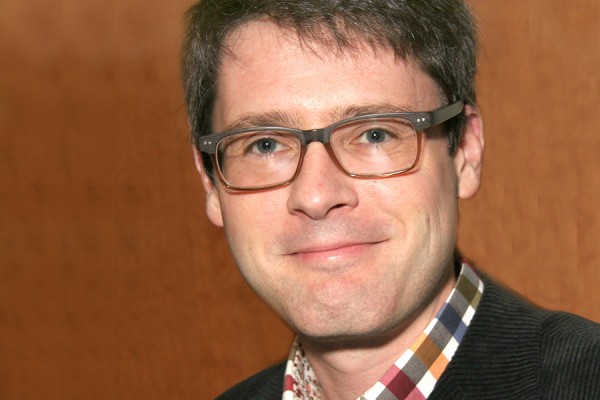 Biology professor Philip Karpowicz is exploring whether circadian rhythms affect cancer growth.
Biology professor Philip Karpowicz is exploring whether circadian rhythms affect cancer growth.
The human body constantly cycles through 24-hour changes in what is called the circadian rhythm, which dictates sleep patterns and wakefulness — and deep down at the cellular level, it tells stem cells when to grow and divide. Biology professor Phillip Karpowicz’s new project is looking at how this occurs, and whether it can affect cancer growth.
His lab received a grant of $642,600 over five years from the Canadian Institutes of Health Research (CIHR) for his project, A Matter of Timing: Circadian Clock Regulation of Intestinal Healing and Cancer.
“The circadian clock tells stem cells when to grow and when to divide during the day. When the clock is broken because of activities like shift work, we hypothesize this can lead to uncontrolled cell growth — a feature of cancer,” says Dr. Karpowicz.
“We will figure out how circadian rhythms controls healing and cancer in the intestine.”
To test the disrupted circadian clock, the Karpowicz lab will study both mice and intestinal organoids, which are mini organs grown from stem cells in cell culture. Clinical researcher and physician Caroline Hamm from Windsor Regional Hospital is a collaborator on the grant and will help obtain human tissues from cancer surgeries to study these processes in human cells.
“Our project will test how changes to lifestyle, like shift work or frequent travel, are risk factors that make the intestinal cells grow poorly. This could strengthen the case that shift work is carcinogenic,” says Karpowicz.
In addition to studying the dangers of a disrupted clock, the project will also investigate how medical treatment could be significantly improved by knowing how time of day affects healing.
“There are myriad medical implications with this type of research; a lot of medical therapies will benefit by knowing whether time of day is an important factor in treating patients,” he says. “From medical testing, administering medication, scheduling surgeries and even drawing blood.
“The importance of this work is that we will be able to predict the best times to provide therapy.”
The health researcher says he is thrilled with this grant. In addition to being great for his lab, he says it benefits the community, the hospital and university, and will offer students a great training experience.
It was part of a $372 million investment in innovative health research announced January 24 by federal health minister Ginette Petitpas Taylor.
It will benefit all of Canada, says Roderick R. McInnes, acting CIHR president.
“Through these grants, CIHR is supporting researchers at all career stages, across the entire country, and in all areas of health research,” he says. “Our investigators have made Canada a global leader in health research.”
Sara Elliott
